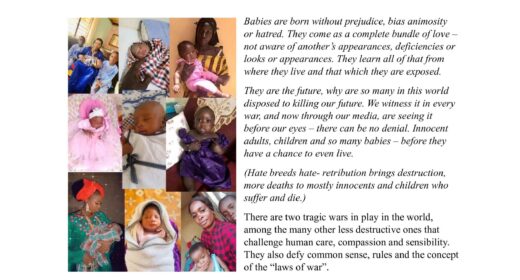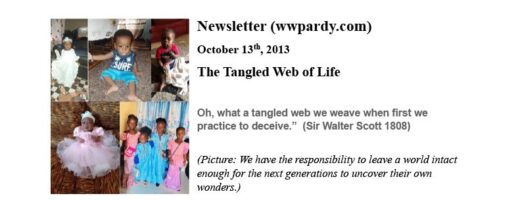The world appears full of intolerance. Civility appears a thing of the past, a little used or understood concept in a world of wants and consumerism.
This intolerance is evident in the struggles and wars that have grown pervasive. In the developed world, it is most apparent in the disparaging commentary, the belligerent and bigoted responses and the use of malicious, hurtful even racist language.
In Canada this was prevalent in the media coverage pertaining to the recent hunger strike by Attawapiskat’s Chief Theresa Spence. It was evident in the response to the protest by Marlene Giersdorf in Prince Edward Island because her employment benefits had been withdrawn.
The commentary and especially the individual related comments gave one pause for thought. The vitriol espoused by most responding to media articles made one wonder if civility is alive at all.
Canada used to be one of the most respected nations in the world for its caring, socially supportive and peaceful nature. Today in the world it is seen in a different light and the Maple Leaf has lost much of its luster.
Much, but not all, of this can be attributed to the policy direction of the current government. This is a government with little regard or reverence for the laws that afforded the country such respect.
Canadian’s are no longer peacekeepers, international policy has become provocative and support for the UN, despite its inequities, is non-existent. Our response to most countries, except Israel, is mostly caustic.
Most importantly, this government sees the Canadian legislation that provided its stability as something to be usurped or dismissed. They have only their own vengeful rules and laws which are being imposed.
This government mimics the intolerance that encompasses the globe, because they think it is pragmatic and gives them advantage. They have no vision, much less one of the more enlightened supportive society of former leaders that made Canada a shining light in the world.
The root of the world’s intolerance, and our own, can fundamentally be found in the growing gap between those that have and those without. It has surpassed tolerable levels in many countries, and as a result, intolerance abounds.
This intolerance manifests itself in different ways; through religious persecution, political unrest, economic repression or gender subjugation. The tone appears disparaging on one side while on the other it is focused on anger and rage.
There is always someone to blame, usually those disadvantaged, whether it is the marginalized, impoverished, elderly or youth. A Japanese cabinet minister attributed all the blame of his country’s woes to the elderly suggesting that they should “just hurry up and die”.
In many countries now the blame is on the unemployed, especially the young unemployed; the solution is to slash benefits and support, thereby, forcing migration.
Some suggest, as with the aboriginals in Canada, that everyone must be integrated, which means they should conform.
There appears to be little appreciation for the fact that the world has changed dramatically in the past few decades with growing disparities, which has increased unemployment and resultant marginalization.
Forgotten are the foundations that facilitated the progress of the developed world encompassed in the concept of caring societies, expansion of opportunity (not just money) and the sharing of the vast resources that still exist in the world.
Respect has been trampled by those in a hurry to have all the money and all the power. The business and political elites emulate the authoritarianism of those countries least developed; not the democratic basis of those most developed.
People are mere needy clients, but necessary for their vote to win re-election and more power. This power must be sustained at all costs, even if by the manipulation of the rule of law.
How can ordinary people have respect with such an attitude prevalent among those who govern?
There is hope which is stored in the huge, mostly silent, majority. They quietly watch and perhaps puzzle at this bizarre behavior.
Perhaps they are comfortable, maybe afraid, or at present, unable to contemplate their role in changing this mixed up world.
As the disparities within society envelopes more of them and as intolerance expands, one hopes they will be stirred, impassioned and stimulated to action.
It is only then that some balance will be brought back to society and adequate controls placed on politicians and bureaucrats alike. Then policies and rules can be re-instated to contain financial and business entities who have run amuck, even stealing from those who they are supposed to serve.
Real power always lies with the masses. What’s required is a quiet revolution led by the grass roots that would remind those who would intimidate, belittle and control where real power lies.
Written by Bill Pardy
February 18, 2013


